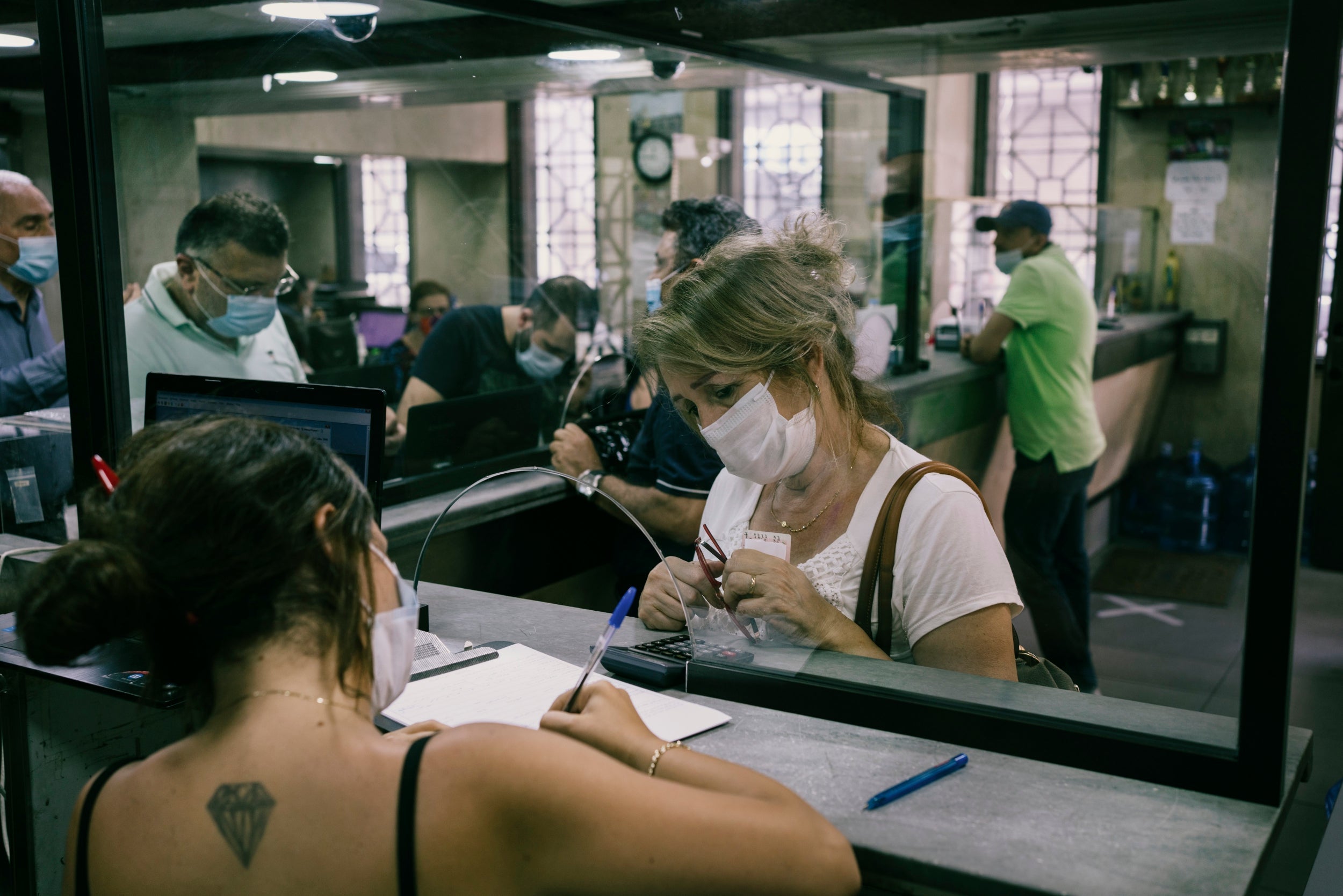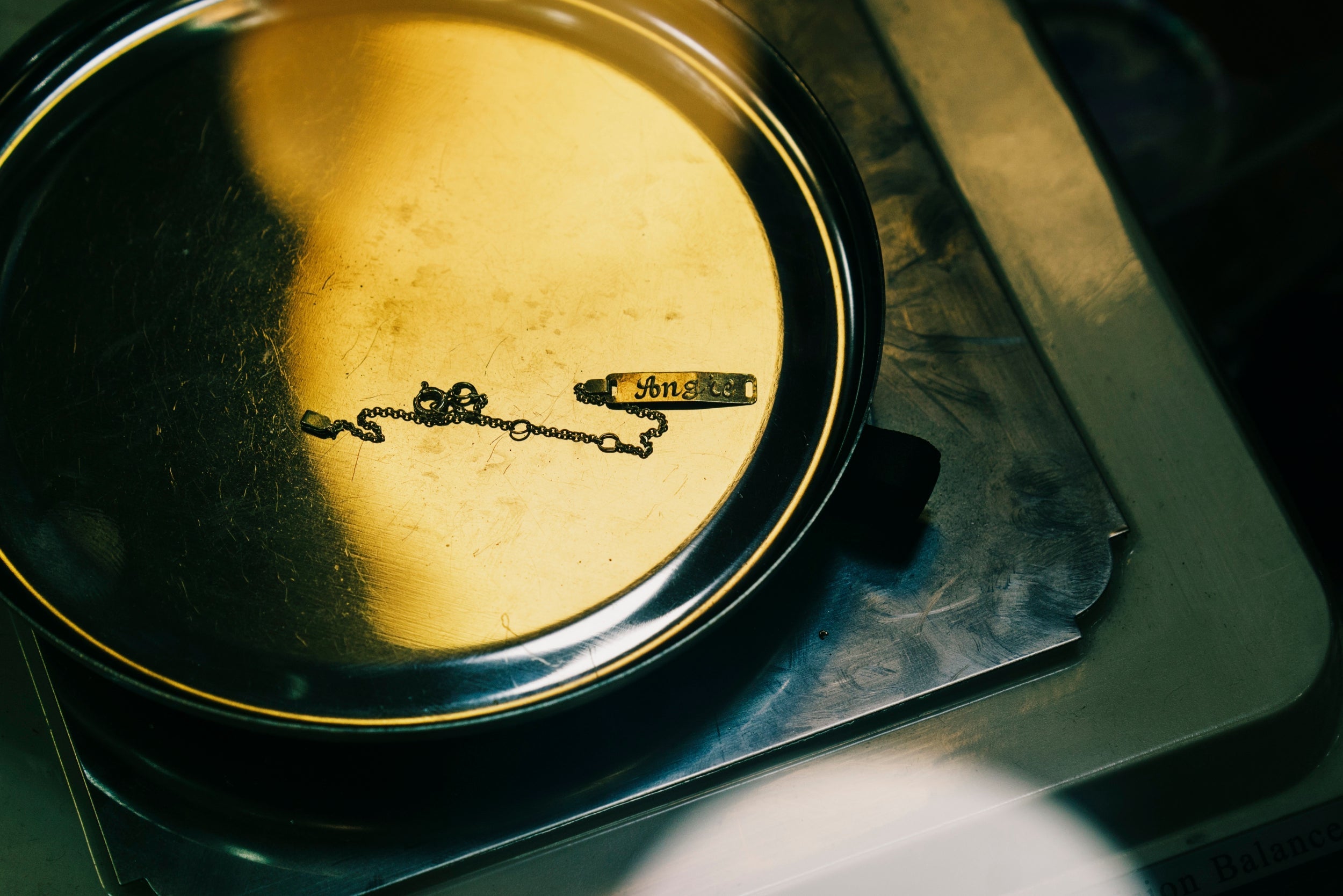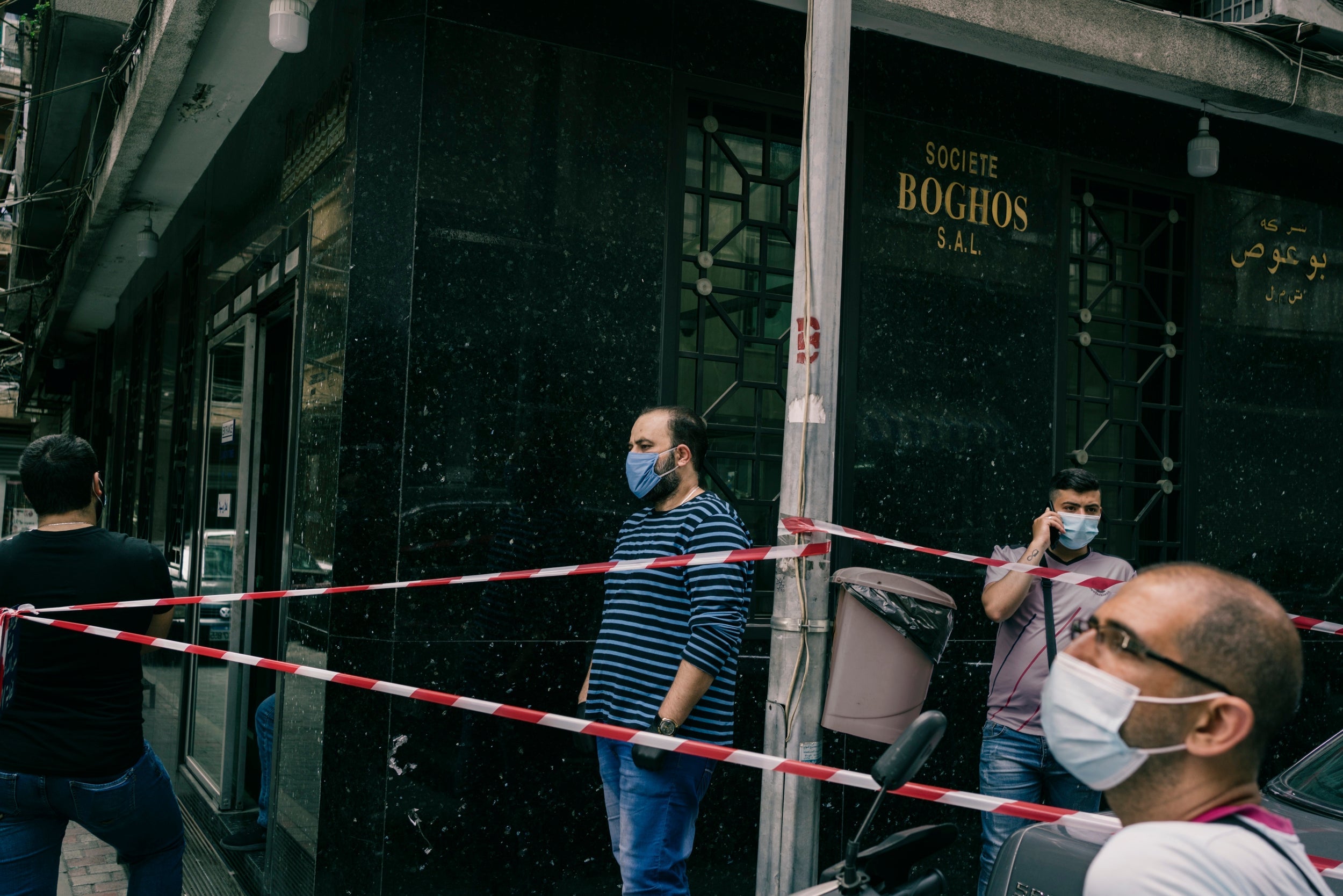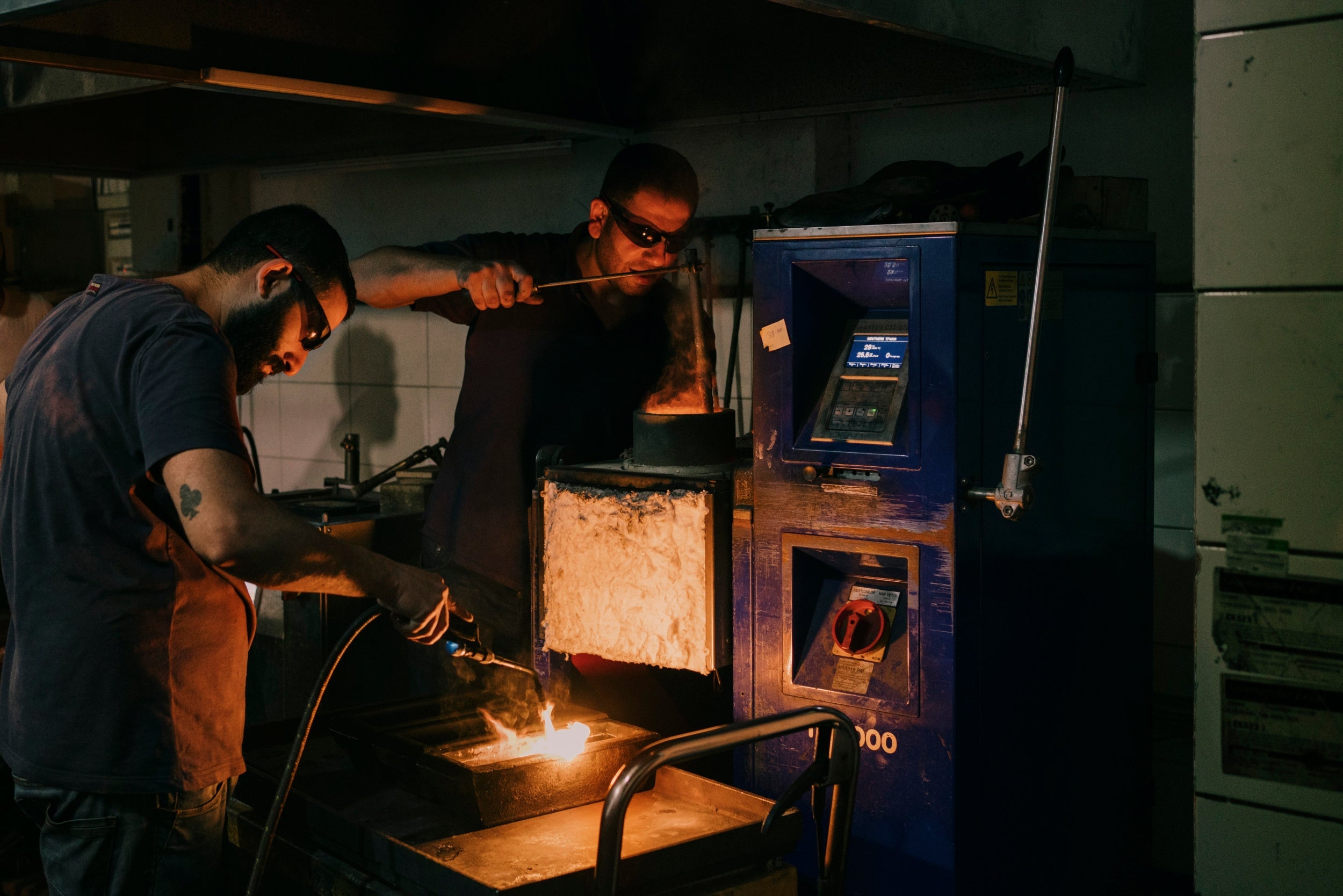The Middle Eastern women selling their gold jewellery to make ends meet
A desperate economic situation across the Middle East is leading many women to sell their jewellery just to pay for food, writes Sarah Dadouch

Your support helps us to tell the story
From reproductive rights to climate change to Big Tech, The Independent is on the ground when the story is developing. Whether it's investigating the financials of Elon Musk's pro-Trump PAC or producing our latest documentary, 'The A Word', which shines a light on the American women fighting for reproductive rights, we know how important it is to parse out the facts from the messaging.
At such a critical moment in US history, we need reporters on the ground. Your donation allows us to keep sending journalists to speak to both sides of the story.
The Independent is trusted by Americans across the entire political spectrum. And unlike many other quality news outlets, we choose not to lock Americans out of our reporting and analysis with paywalls. We believe quality journalism should be available to everyone, paid for by those who can afford it.
Your support makes all the difference.Sarah Itani took her two-year-old daughter’s tiny bracelet, engraved with “Angie” in cursive, and handed it to the gold merchant. He weighed it, along with one of Itani’s wedding bangles and a few other pieces of her daughter’s jewellery, then offered her $84 (£67) for the modest collection.
She took the cash. Then she raced to the hospital to buy medicine for her young son. With her husband out of work, sent home because of the coronavirus lockdown in Lebanon, Itani said there was no other way to pay for the three doses of medicine their son so badly needed.
Across much of the Middle East, women pushed to desperation by the economic pressures of the pandemic have been selling off their gold.
Strict public health measures, coming on top of a severe economic downturn since last autumn, have left many Lebanese families without income. More than a dozen jewellers across Beirut said their gold purchases had spiked after Lebanon imposed its lockdown in March, forcing businesses to shutter their doors and lay off their employees. Women like Itani unearthed their delicate gold chains and intricate bracelets – some even took off their wedding bands – and solemnly made their way to jewellers.
Itani’s son had been hospitalised for more than a week, writhing in pain, before doctors diagnosed him with Kawasaki disease, a rare inflammatory illness. But the medicine was expensive, she said. Her family had no insurance, no income from her husband’s former job in a clothing warehouse and no more cash left to spend.
“They took everything we had at the hospital,” she said as she waited late last month to finish her transaction with the gold merchant.
The merchant who bought Itani’s jewellery sold it in turn to another buyer, who would melt it down and sell it again to a wholesaler, like the company Boghos in Beirut’s Armenian neighbourhood of Bourj Hammoud.
“In Lebanon, we’re already in a crisis,” said Chris Boghos, the son of the company’s owner. “The people who need cash to get milk, to pay rent ... are being forced to sell,” he said, adding that they’re seeing women sell their wedding rings straight off their fingers.
For Middle Eastern women, the phrase “her gold” carries a weight beyond that of the precious metal. Newborn girls often receive gifts of gold earrings and necklaces or, most frequently, delicate gold bracelets bearing their names. A bride will traditionally receive a dowry of earrings, a bracelet or a necklace from the groom and his family, and “her gold” represents security, a last resort tucked away for hard times such as divorce or the death of a husband.
When a married woman sells her gold, it is often done with a sense of shame. It means that all other options have been exhausted – and is interpreted as the husband having failed his family.

“You understand what it’s like,” said one Lebanese merchant quietly, brushing aside a reporter’s questions and returning to the task of appraising an array of ornate jewellery being offered to him. “This is extremely private.”
Even as more women have been looking urgently to sell, gold shops have had difficulties maintaining their operations under the lockdown. In Beirut’s poor Basta neighbourhood, some merchants have begun making house calls to appraise and buy jewellery.
Mohammed Hoori, a gold merchant in Beirut, said he would sit outside his shuttered shop to receive customers, then hustle them inside. “People are going hungry,” he said. “They want to feed their children.”
In Baghdad, an Iraqi gold merchant named Haider Kadhim said he had also seen a spike in sales by desperate families who had lost work during the coronavirus lockdown.
‘I had some gold jewellery that I never wanted to sell,’ said the woman, who spoke on the condition of anonymity because of the sensitive nature of her research. ‘All the pieces were very dear to my heart.’
“They are selling the gold they have. Not lots of quantities, but small stuff like rings and earrings, stuff that gets them around $300 so they can at least provide food,” he said. The gold, he added, “is mostly from their weddings, which is supposed to be for women in their hard times”.
Abu Salah, 51, a labourer who lost his work this spring, visited Kadhim’s store after finally asking his wife’s permission to sell her jewellery. “Since we were young, we learned that the wife’s gold is hers only, and the man cannot do anything with it,” he said.
The gold had been his wedding gift to his wife 30 years ago.
“I feel like less of a man for doing this. The man should be able to support his family, always, without touching his wife’s gold,” Abu Salah said. “I am ashamed of doing this. But now I have no other options.”

Syrians have also been selling off their gold, said Ghassan Jazmati, head of the craft association for goldsmithery and jewellery-making in Damascus, in an interview with Syria’s al-Thawra newspaper. He added that this trend reflects how badly Syrians need cash for basic needs, such as food and medicine, amid an economic crisis in that country that has as much to do with nine years of war as the pandemic.
Unlike in neighbouring countries, most of those sales have been over social media. In April, as Syrians posted online photos of jewellery for sale at cut-rate prices, gold merchants feared that the market would collapse and lobbied the government to reopen stores that had been closed to fight the epidemic.
It is not just women who have long turned to gold as a traditional way to safeguard their wealth and save for emergencies. In many Middle Eastern countries, banks are often seen as untrustworthy or unreliable – recent banking crises in the region have reinforced those fears – and the kind of retirement savings programmes that are available in the west are relatively rare.
Across the Middle East, however, coronavirus outbreaks have disrupted traditional gold markets. Dubai’s gold souk, home to nearly 400 retailers, shut down in March to curb the spread of the disease and, even after reopening in late April, remained mostly empty of purchasers. In Egypt, gold production was cut because of falling domestic demand due in part to the postponement of weddings and other celebrations.

But even though worldwide demand for gold jewellery plummeted by 39% in the first quarter of 2020 compared with last year – a record low registered in a quarterly report by the World Gold Council – the overall demand for gold is up, as global investors seek safe assets during uncertain times. The price of gold fluctuated at the beginning of the pandemic, falling in late March before steadily rising more than 15% since then.
For one Egyptian woman, it was only when she lost all hope that she sought out the gold merchants. She had been planning to move overseas, but the pandemic cost her the research scholarship she was counting on. Her husband, a human rights advocate, had been forced to close his office after facing security issues, and with no job prospects of her own, she became despondent. She decided to sell 100 grams of gold to make ends meet.
“I had some gold jewellery that I never wanted to sell,” said the woman, who spoke on the condition of anonymity because of the sensitive nature of her research. “All the pieces were very dear to my heart.”
On the way to the merchant, she burst out crying, she recounted. “I had bought them with my own money. No one bought them for me, and that is why it hurt even more.” The merchant, moved by her tears, urged her not to sell all the gold at once, but the woman said she had no choice.
“Every piece had a story. Every piece left a mark on me,” she recalled.
Sometimes, she said, she still absent-mindedly brushes her neck where her necklace once was, only to remember that she has sold it.
The Washington Post’s Mustafa Salim in Baghdad contributed to this report
© The Washington Post
Join our commenting forum
Join thought-provoking conversations, follow other Independent readers and see their replies
Comments